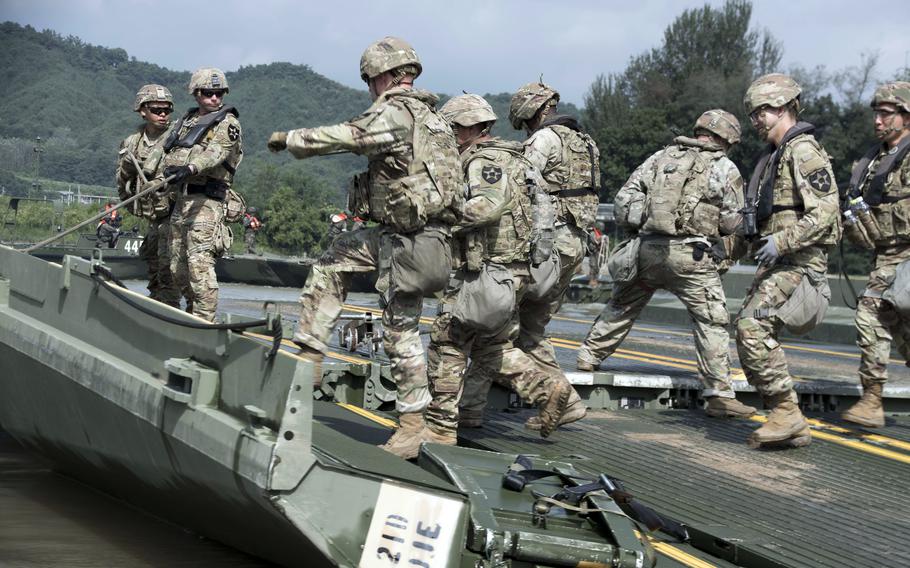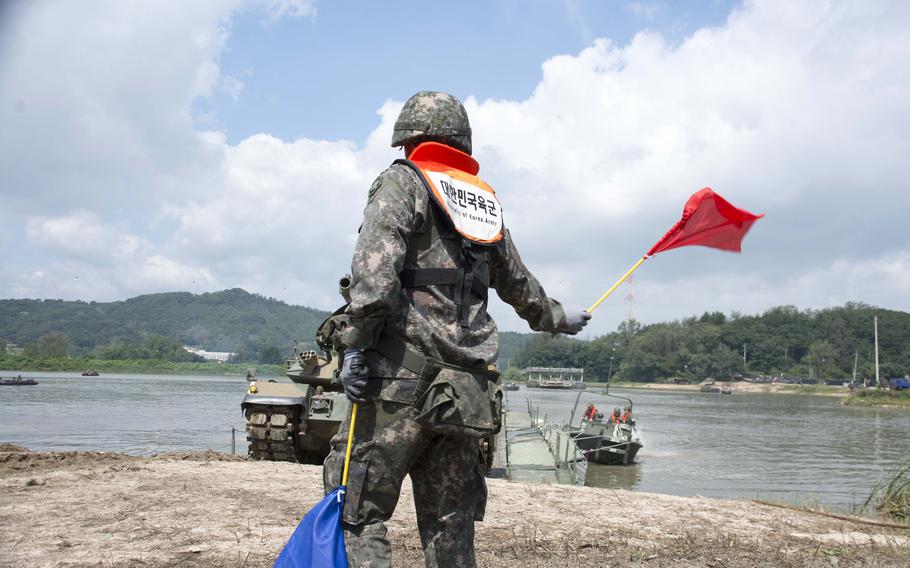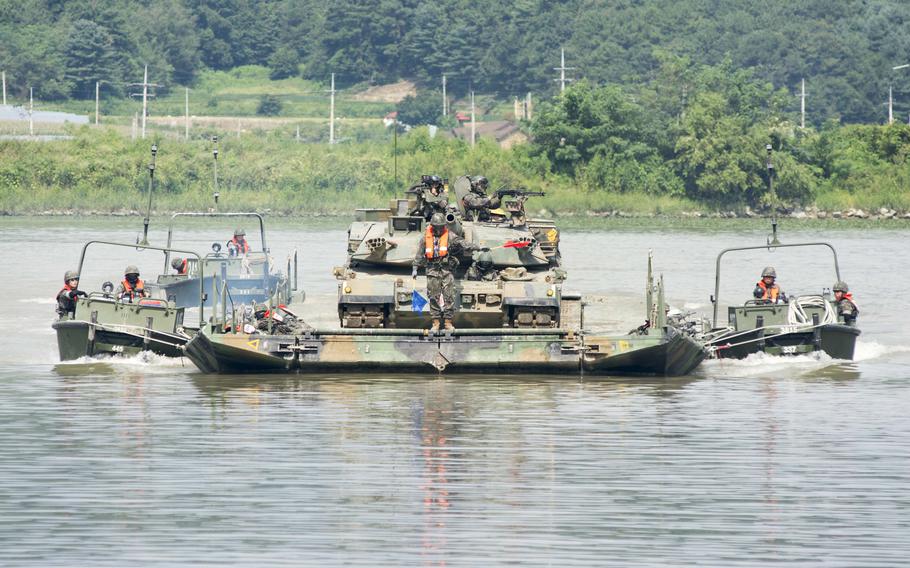
Soldiers from 11th Engineer Battalion, 2nd Infantry Division connect ribbon bridges during a wet-gap crossing drill with South Korean troops at a reservoir in Cheorwon county, near the North Korean border, Thursday, Aug. 31, 2023. (Christopher Green/Stars and Stripes)
CHEORWON, South Korea — U.S. and South Korean combat engineers demonstrated their bridge-building prowess Thursday by moving an armored column across open water just 15 miles from the border with North Korea.
About 220 soldiers — 70 from the 11th Engineer Battalion, U.S. 2nd Infantry Division and 150 South Koreans — used 6 ½-ton floating sections to lay a bridge across a reservoir in Gangwon province.
The exercise culminated with a column of South Korean K1A2 tanks and K21 fighting vehicles moving a quarter-mile across the 23-foot-deep, open water, or “wet gap,” atop the floating bridge.

South Korean soldiers direct a K21 infantry fighting vehicle onto the shore during Ulchi Freedom Shield training in Cheorwon county, near the Demilitarized Zone, Thursday, Aug. 31, 2023. (Christopher Green/Stars and Stripes)
Perfecting the wet-gap crossing is essential to maintaining an effective deterrent against adversaries like North Korea, said battalion commander Lt. Col. Brent Kinney.
“We continually have to refine and achieve the highest state of readiness possible so that we can support that ‘fight tonight’ mentality,” he told reporters, invoking the U.S. Forces Korea motto. “It’s not a bumper sticker. You can’t just say we’re ready to fight tonight — we have to actually perfect and hone our skills such that if we’re called to serve in a deterrence posture, we are ready.”
The U.S. and South Korean armies use compatible bridging equipment, which simplifies a coordinated operation and training on each other’s methods, Kinney said.
Wet-gap training is particularly important in South Korea, where much of the terrain is either mountainous or wet, said Lt. Col. Nam Kung Kyung of the South Korean Mechanized Infantry Division.

A South Korean K1A2 tank crosses a reservoir during "wet gap" training in Cheorwon county, near the Demilitarized Zone, Thursday, Aug. 31, 2023. (Christopher Green/Stars and Stripes)
The training was one of the roughly 30 drills during Ulchi Freedom Shield, an 11-day test of the U.S. and South Korean forces’ ability to defend against the North Korean military.
Last week, roughly 500 U.S. and South Korean troops practiced their street-fighting skills in the Urban Area Operating Center, a simulated city block eight miles from the Demilitarized Zone separating the two Koreas.
North Korea conducted its own exercise late Wednesday. It fired two short-range ballistic missiles, part of a simulated, “scorched earth” nuclear attack, followed by rehearsal of a South Korean occupation, the state-run Korean Central News Agency reported Thursday.
The missiles flew roughly 225 miles before splashing into the Sea of Japan, also known as the East Sea.
North Korean leader Kim Jong Un oversaw the exercise, according to KCNA.
South Korea’s Ministry of National Defense in a statement to news reporters Thursday said it “strongly condemned” the launch and was conducting a joint analysis of the missiles with the U.S. military.